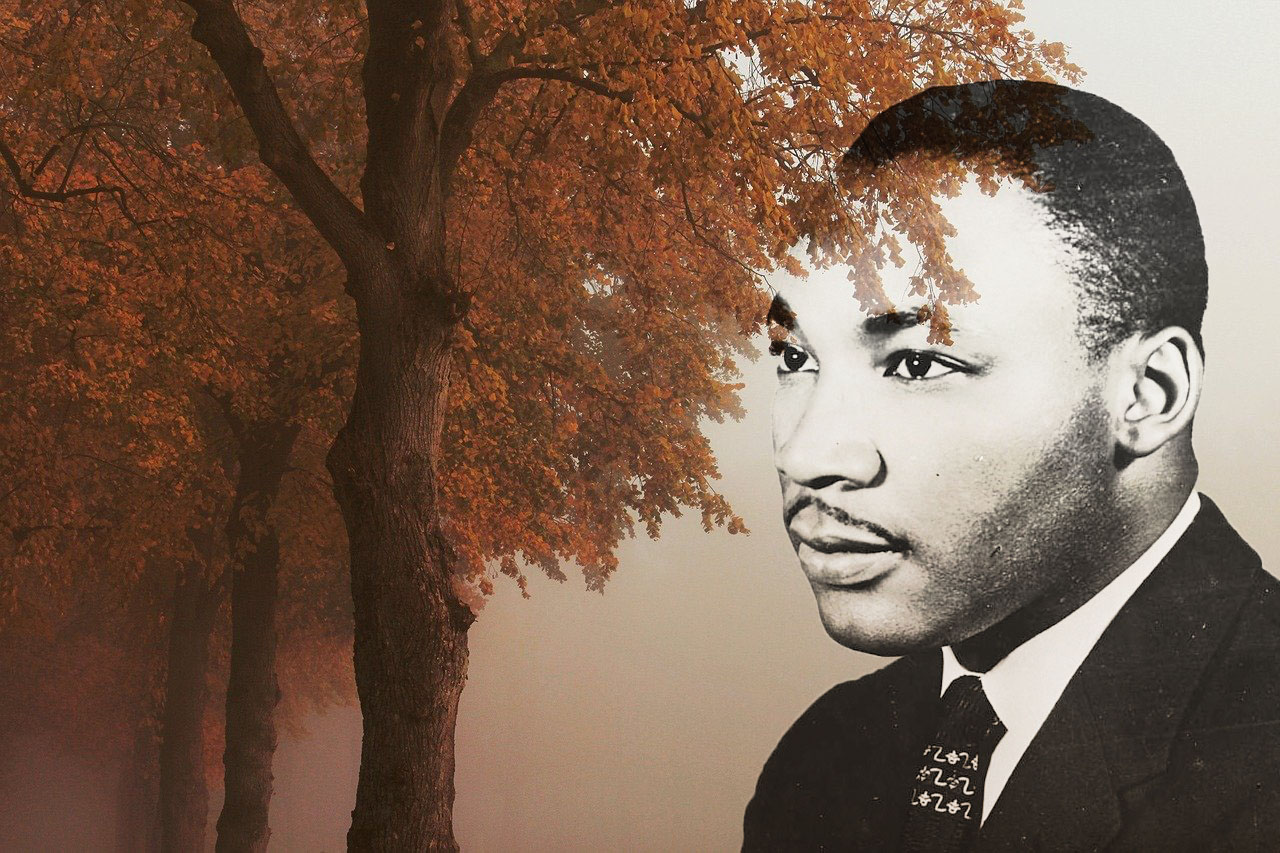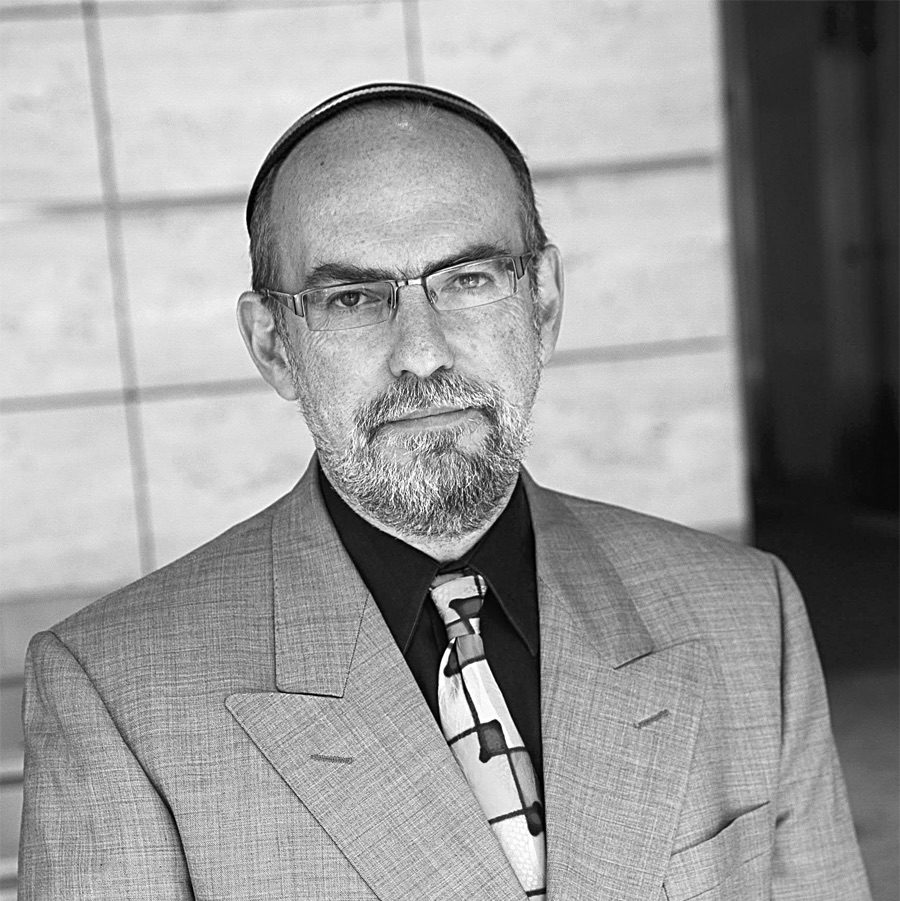 Martin Luther King photo by FPG/Archive Photos/Getty Images
Martin Luther King photo by FPG/Archive Photos/Getty Images What is the opportunity that is afforded to us this year by the coincidence that Martin Luther King Day and Tu Bishvat fall on the same day? Might this luni-solar coincidence light some path to follow this year?
Over the past many years MLK Day has become a day of service, as if the legacy of Martin Luther King was merely that, in the end, we just need to be nice to each other; we just need to help each other out. King’s nonviolence was a revolutionary nonviolence, built on direct action whose aim was to interrupt and disrupt the racist institutions that upheld white supremacy. While it was nonviolent, it was never intended to be passive. It was designed to provoke. Its aim was to show the violent reactions of the forces of anti-Blackness. When the white establishment of one sort or another pronounces that a certain type of protest or uprising which unleashed or led to police violence dishonors the legacy of King, it is almost definite that what the speaker means is: Why are you doing something?
In the face of an egregious wrong, in what world would King (the person who said that “a riot is the language of the unheard”) have stood aside and let the authorities investigate, police, and then find themselves innocent?
This year, the King family has stepped forward to remind the country that the nonviolent movement for civil rights was focused on, and grounded in the right to vote. The peaceful revolution would happen at the ballot boxes—while events both sixty years ago and last year prove that the ballot box is not at all a peaceful place.
The impetus behind the demand is to register Blacks to vote, and for the Black community the motivation to vote must have been the same as that which animated Langston Hughes’ stunningly beautiful and awful poem:
O, yes,
I say it plain,
America never was America to me,
And yet I swear this oath—
America will be!
Commanding a crowd, as he always did, this one at Riverside Memorial Church in April of 1967, King schooled America in the evils that it was perpetrating in the world and also how Americans could rewrite their future. Yet they did not listen. We did not listen. The speech could have been spoken yesterday, and the spirit of Hughes could have been, and was, calling out state violence, police violence, racist killing.
Sure, call me any ugly name you choose—
The steel of freedom does not stain.
From those who live like leeches on the people’s lives,
We must take back our land again,
America!
King looked out at his audience and outlined the path back from the brink, a path that was stark in its revolutionary demands, and whose demands remain unfilled fifty years after an assassin’s bullet bathed in American racism killed him.
“I am convinced that if we are to get on the right side of the world revolution, we as a nation must undergo a radical revolution of values. … A true revolution of values will soon look uneasily on the glaring contrast of poverty and wealth. … A true revolution of values will lay hand on the world order and say of war, ‘This way of settling differences is not just.’ … A nation that continues year after year to spend more money on military defense than on programs of social uplift is approaching spiritual death.”
This year, Tu Bishvat is also part of the shmittah year, the seventh year of a counting that started more than two thousand years ago in the Land of Israel, commanded in the Torah. The shmittah year is a year of letting go, of debt forgiveness and letting the land lie fallow. The root of the Hebrew word shmittah, sh-m-t, means literally letting drop or releasing.
While Tu Bishvat is often mistaken for a Jewish Arbor Day, a day to plant trees and eat fruits of the season, and identify with the Zionist movement, or more recently raise environmental concerns, perhaps this luni-solar confluence can put us in a more radical mindset.
In another famous speech, King named the “three evils of society” or the “triple prong sickness” of “racism, excessive materialism and militarism.” The root of these evils is in the deep-rooted understanding on which America was founded: that Americans have a Divine right to everything. The American dream is rooted in both abundant material goods and manifest destiny. At the root of both of those is racism and white supremacy, the twin beliefs that a Black underclass is necessary for the fulfillment of the American dream. What began in the plantation continues with plantation capitalism. American foreign policy is rooted in the belief that the greatest good is keeping Americans safe even at the cost of so many others.
The demand to “let go!” is a beginning to a possible solution.
On Tu Bishbat this year, perhaps, we should step back from planting and recycling and lobbying for clean energy, and take a moment to recognize that in the United States the brunt of ecological devastation falls on Black and Brown and poor communities. Climate change is killing people, but not equally. For example, according to an NPR study of 108 urban areas nationwide, “the formerly redlined neighborhoods in nearly every city studied were hotter than those not subjected to redlining. The temperature difference in some areas was nearly 13 degrees.” The story of how Flint, Michigan poisoned its residents through its water supply is another story of racist choices leading to racist outcomes. In 2014, to save money, the city changed its water source to the Flint river, but failed to treat the new supply adequately, exposing the city’s 100,000 majority-black inhabitants to dangerous levels of lead from aging pipes and other contaminants such as E.coli. There are many more examples.
Corporations are fined less for polluting in Black and Brown neighborhoods. The toxic dump, the oil drill, are located near or in poorer neighborhoods. The incidence of heart conditions and respiratory problems is up in these places.
Maybe this year as we “let go” and resolve to live lighter on the planet, we should actually think of reparations along with our resolutions. Moving forward, we should demand that corporations, city and state governments, account for the disparate harms that Black and Brown communities suffered when they right the wrongs of the past. Black and Brown and poor communities need more green spaces, less concrete, more investment in clean technology.
Real shmittah, a real letting go this year, will mean that going forward we who have benefitted from practices that led to ecological devastation should be willing to let go of those parts of our lifestyles that come at the expense not only of the planet but also of other inhabitants of this planet.
Aryeh Cohen is professor of rabbinic literature at American Jewish University, the rabbi-in-residence at Bend the Arc: Jewish Action, Kogod Research Fellow of the Shalom Hartman Institute and immediate past co-chair of the Board of Clergy & Laity United for Economic Justice. His latest book is “Justice in the City: An Argument From the Sources of Rabbinic Judaism.”























 More news and opinions than at a Shabbat dinner, right in your inbox.
More news and opinions than at a Shabbat dinner, right in your inbox.